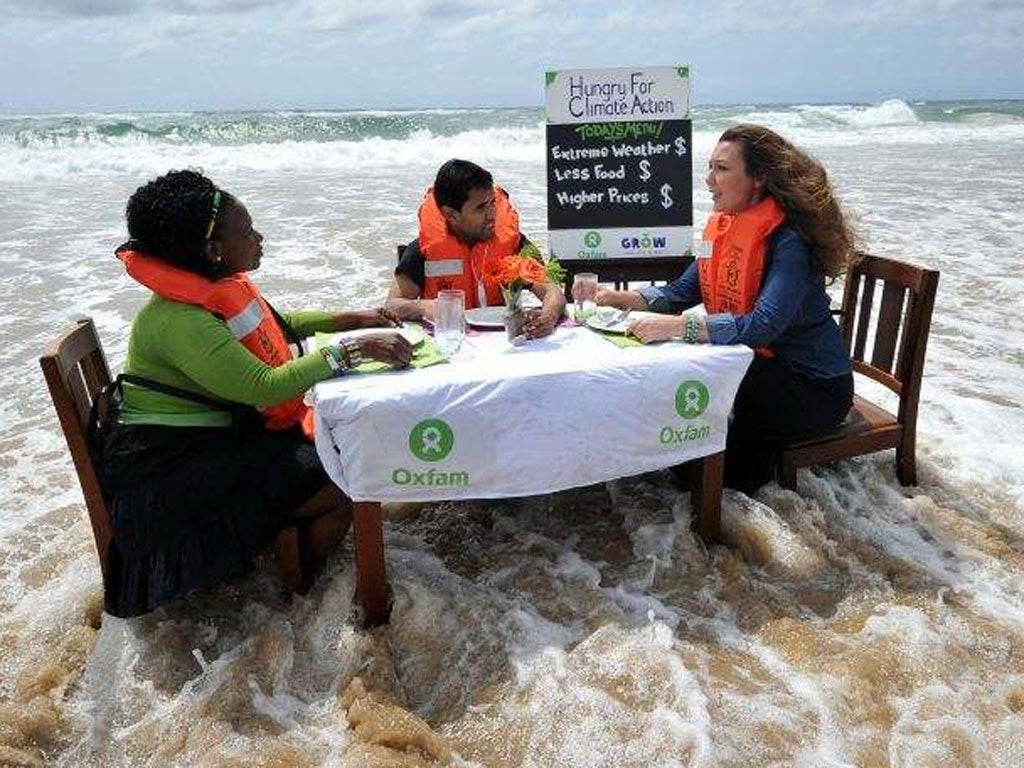Sign climate deal or poorest will starve, summit told

Your support helps us to tell the story
From reproductive rights to climate change to Big Tech, The Independent is on the ground when the story is developing. Whether it's investigating the financials of Elon Musk's pro-Trump PAC or producing our latest documentary, 'The A Word', which shines a light on the American women fighting for reproductive rights, we know how important it is to parse out the facts from the messaging.
At such a critical moment in US history, we need reporters on the ground. Your donation allows us to keep sending journalists to speak to both sides of the story.
The Independent is trusted by Americans across the entire political spectrum. And unlike many other quality news outlets, we choose not to lock Americans out of our reporting and analysis with paywalls. We believe quality journalism should be available to everyone, paid for by those who can afford it.
Your support makes all the difference.Rising food prices caused by droughts and flooding make progress in global negotiations on climate change more vital than ever, world leaders are being warned today.
As the annual United Nations talks on curbing greenhouse gas emissions begin in the South African city of Durban, Oxfam said shortages of rice and grain will only increase as wildfires and monsoons affect some of the world's poorest regions.
The charity's call for the conference to agree to a legally binding deal on reducing carbon releases into the atmosphere was backed yesterday by the Archbishop of Canterbury. He called on governments to "step up to the responsibilities only they can exercise".
But with the world economy teetering on recession, their calls look likely to fall on deaf ears as it becomes harder than ever to reconcile the 194 governments represented at the convention. Even agreements made two years ago in Copenhagen are proving problematic. In 2009, it was agreed that $100m (£64.7m) a year would be given to the poorest countries suffering from global warming by 2020.
Now the world needs to agree how that money will be raised. The Kyoto Protocol, which obliged rich nations to cut emissions and is set to expire in 2012, is a still more serious issue. To ensure that gas emissions peak in 2020 before falling as agreed, the EU wants a new treaty including every major economy – including the US, which never ratified Kyoto, and China, which fell outside the remit when it was drawn up.
Both are resistant, as are many developing nations – who insist the measures outlined in Kyoto are the bare minimum they will accept. And further compounding the issue, Russia, Canada and Japan say they will not sign up to new commitments.
Join our commenting forum
Join thought-provoking conversations, follow other Independent readers and see their replies
Comments